Common periwinkle has become quite common indeed. The plant is extremely popular because of its ability to quickly cover the ground with elegant glossy leaves year-round. One plant can cover up to 8 square feet.
While common periwinkle sits on the "exotic invasive" line, you'll have nothing to worry about as long as you plant responsibly and keep an eye on it.
Yes, this plant is ridiculously popular, but I think of it this way: If this plant were in high school, it would be the person who was popular because she was nice to everyone.
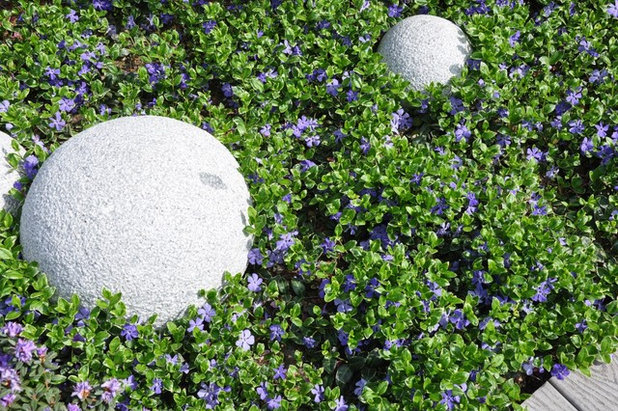
Pacific Ridge Landscapes Ltd
Botanical name: Vinca minorCommon name: Common periwinkle, creeping vinca
USDA zones: 4 to 9 (find your zone)
Water requirement: Consistent moisture after first planting; doesn't need much after it's established.
Light requirement: Does best in dappled shade but can grow in full sun or full shade as well.
Mature size: 1 to 8 inches tall; will spread to cover large areas.
Benefits and tolerances: Tolerant of shade, sun, wet soils and drought. This is a very low-maintenance plant; once it's established, all you need to worry about is keeping it from invading other areas.
Seasonal interest: Has evergreen leaves; blooms from mid-spring to fall.
When to plant: Early fall or spring.
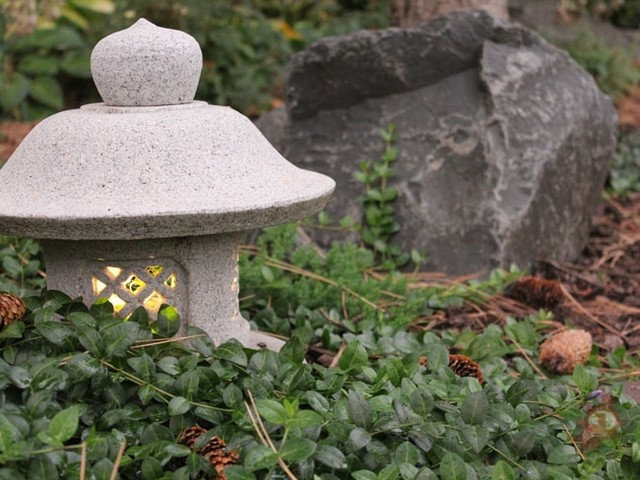
Ground One Enterprises of MN
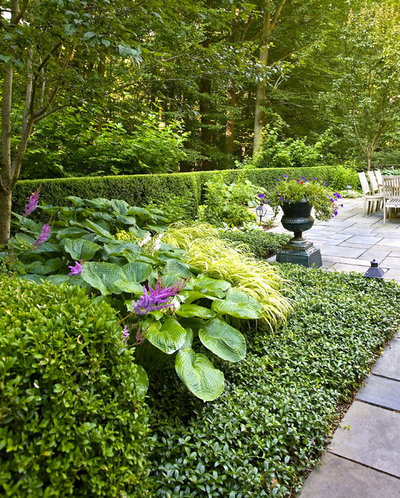
Liquidscapes
Distinguishing traits. What makes periwinkle so popular is its ability to cover large areas with glossy green leaves. They have great variation from dark green to light, depending on how the sunlight is hitting them, and they look especially good with other evergreens, ferns and hostas.
There are many varieties of
Vinca minor that will vary in height, leaf size and color, and flower color and size.
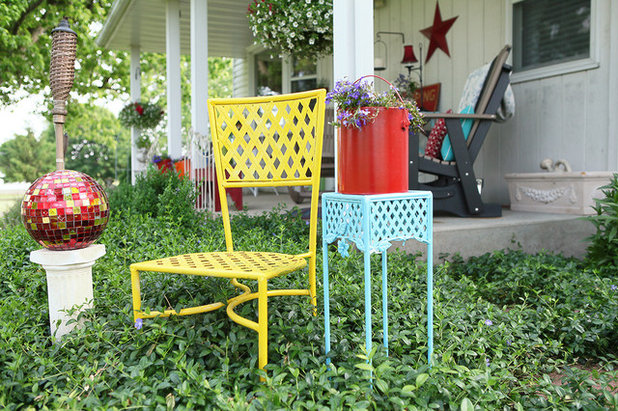
Julie Ranee Photography
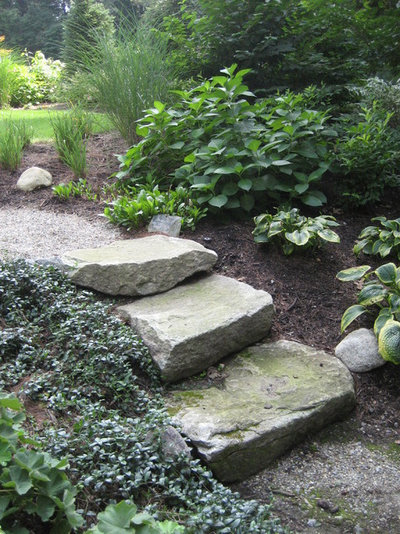
Timothy Sheehan, ASLA
How to use periwinkle in the garden. Warning: Periwinkle can be invasive and spreads rapidly; be responsible and don't let it invade woodlands.
Now, on to the fun stuff. Periwinkle is a lovely ground cover, and its rapid spread is great when you have a large area you'd like to cover. It's very popular for foundation plantings and for providing a carpet of green as an alternative to mulch or pine straw. It's great to use underneath trees where grass will not grow.
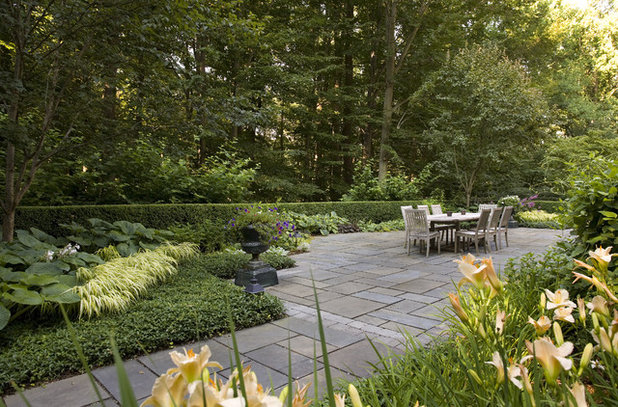
Liquidscapes
Here, a carpet of periwinkle borders a shady patio.
Planting notes - Tilling the soil with peat moss will speed up the spreading process.
- Space plants about 18" apart.
- Soak the plants and soil.
- Add a light cover of mulch.
- If you opted not to till with peat moss, fertilize.
- Water for a month after planting. If you are weeding the area, be careful not to weed out new growth that will pop up between the original plants.
- Once the plant is established, it will not need much maintenance. Just make sure it doesn't spread beyond where you want it to.





